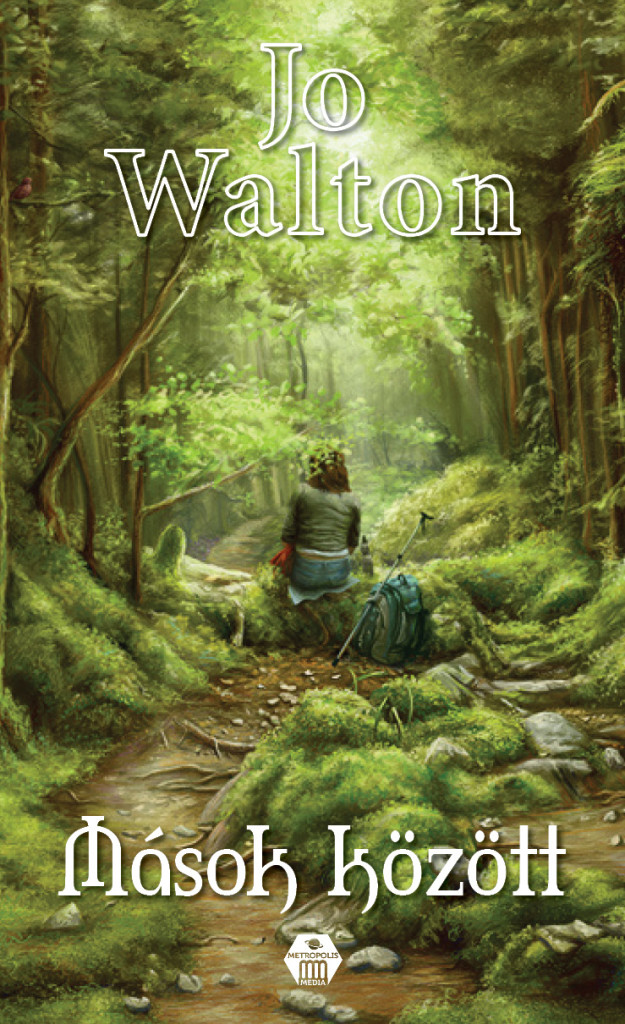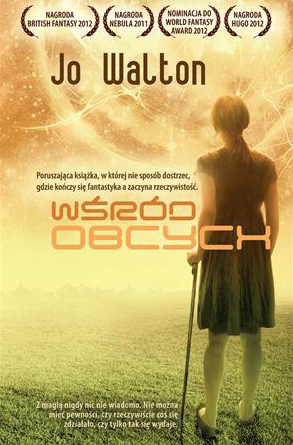When I was a child, I could run. I haven’t been able to run since I was fourteen or fifteen, because of a trapped nerve in my pelvis after it had been broken, which affected me when I grew.
The house where I was born had a garden, and at the bottom of the garden there was a cemetery, and the wall between was easily climbed up and down, and we would play in the cemetery as if it was more garden. It had wild flowers growing in it, and cultivated flowers cut and put on graves, and it had names of people who had once been alive and played and who were now dead. I’d read the names to my sister and we’d make up stories about them, not ghost stories, adventure stories. We’d often climb up onto a grave and sit and read, or play games in there, the muddled games of childhood where I was forever rescuing princesses from nuclear war or dragons from the Germans.
Beyond the cemetery, which was large, was a common — unenclosed common land, later a housing estate, but then grass and trees and a little stream. The common was called Commonake, which may have come from Common Acre, I don’t know. Beyond the common there was a farm, where we would sometimes go with my grandfather to buy eggs.
It sounds incredibly pastoral when I put it like that, but actually this was all within a mining valley, and around these things were rows and rows of Victorian terraced houses, brick and stone with the brickwork around the houses painted, all dirtied by the smudge of ancestral coal smoke. It was town — villages flowing into town and town flowing into more villages, solid settlement except for the mountain-tops, houses, shops, pit heads, schools, houses, but it was all always run through with wilderness, places to play. When I lived in Shropshire, which was countryside, it was all farmed and there was nowhere to go, no leftover little river valleys full of trees, no bogs, no commons, nowhere to touch the wild. Another place I played as a child was an old ruined ironworks, which became a castle or an Indian fort or the lost city of the Incas without my ever once wondering what a ruined ironworks was doing just sitting there.
The other places were for when I was older and could go off to them, but the cemetery and Commonake were essentially part of our garden, and we played in them from the time were were quite small, and we were only intermittently prevented from going out into them.
I would go down the garden, in a dress, always, I didn’t wear trousers until I was twelve, and after that I didn’t wear a skirt again except under protest until I was quite grown up. On both knees, always, there would be scabs, older or newer, sometimes newer cutting across older. I was forever falling and scraping my knees. I was always tucking my skirt into my knickers when I was damning the stream or climbing trees or mausoleums. Zorinth, at the same age, scraped his knees if he wore shorts and wore through the knees of his trousers because they protected his skin. My knees had to look out for themselves.
My dress would be blue, usually, and my sister’s pink. Occasionally when my grandmother had come across an irresistible bargain in material they’d both be identical. One summer mine was yellow and my sister’s was brown. But generally mine was blue, and whatever blue it started off it would soon be faded.
I’d climb over the wall, slipping down among the graves and the overgrown grass. The cemetery would be mown twice a summer, between times the grass could get really high, with rose-bay-willow-herb in it, or speedwell, or poppies and cornflowers, and the long grass was so long and I was so small that sometimes it came to my waist. I would stand for a moment, and then I would run, run flat out, weaving between the gravestones, my feet coming down hard and sure (and it didn’t hurt a bit) my arms outstretched, my hair perpetually straggling undone from its plaits and flying out in the wind, the world’s wind and the wind of my running.
There’s a way of moving you only do when you run, a tilt to your body, you run with your whole body, every muscle, every hair, and it isn’t just the feet going down and down and down in a rhythm as you fling yourself forwards and catch yourself over and over, there’s a way of breathing that comes all through you, it’s everything together through the long grass and the flowers and hair being blown back and wind and sunshine.
It isn’t a way of running that wins races or gets you anywhere, it’s running for the sheer joy of being alive and able to run, and I daresay nobody over the age of twelve runs like that anyway, even if there is nothing in the world that would prevent them.



